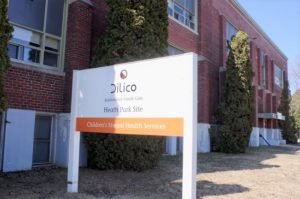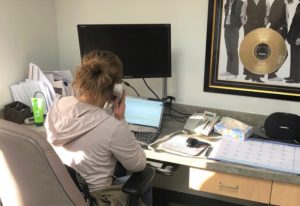Dilico Anishinabek Family Care services continue amidst pandemic

By Rick Garrick
THUNDER BAY — Dilico Anishinabek Family Care continues to provide child welfare services, health services and mental health and addiction services through phone calls, virtual visits and 24-hour emergency services during the coronavirus disease 2019 (COVID-19) pandemic.
“We are continuing to provide all of the child welfare services to the children, families and communities,” says Darcia Borg, executive director at Dilico. “Some of this is face-to-face, we still have to continue some of that, but we are also doing a lot virtually as well. We’ve looked at if individuals have laptops and we’ve been purchasing them and getting them to them so we could communicate with them through that as well. We find that our families are taking this very seriously.”
People can call Dilico at 807-623-8511 or toll-free at 1-855-623-8511 if they have reasonable grounds to suspect a child is in need of help or in need of protection. Emergency services are also available 24 hours a day.
“Our health services also are continuing to operate — our staff have utilized technology as well so there are virtual visits with physicians, nurses and other health professionals,” Borg says. “We still have our primary care team that is mobile and actually going into the First Nations. Last week we received 2,000 COVID-19 test [kits], so we are doing COVID-19 testing in the First Nations through our community health program as well.”
People are encouraged to leave a message at 807-626-5200 to schedule an appointment with the Anemki Family Health Team Clinic.
“Our mental health programs are continuing,” Borg says. “The residential programs are continuing but we’ve delayed intake until further notice but they are still operational in that there are still children and youth that are in these residential programs receiving the services.”
Borg says the cultural program is providing online drum teachings, storytelling for children and online tea with Elders.

“Every Monday morning, Dilico [has] our Monday morning prayer and smudge,” Borg says. “Our cultural manager has started doing that so any staff can join in that way as well.”
Borg says it is a “really challenging time” for children, families and communities during the COVID-19 pandemic.
“We’ve been working in close contact with the community leadership and staff to look at all the needs and provide the necessary support and to keep that contact as well,” Borg says. “I’ve heard from a few leadership that they feel comforted actually that we’re still providing the support. Especially around the online counselling, we’re receiving a lot of positive feedback from the communities. We’re also doing it by telephone, and where people need, we will arrange face-to-face as well.”
People can phone for single-session counselling and for cultural support at 807-629-7554 or toll-free at 1-833-919-4240 on Mondays, Wednesdays and Fridays from 9 a.m. to 4:30 p.m. and at 807-624-7908 or toll-free at 1-833-919-4240 on Tuesdays and Thursdays from 12 to 7:30 p.m.
“A lot of [our communities] are in somewhat of a lockdown, but we’ve been working really well together,” Borg says. “We are providing essential services still in the First Nations, even around food security. That can sometimes be a challenge and we are assisting in that as well, so it’s certainly been a challenge just as it has for everyone. But I’m really pleased with how we are working together with the First Nations.”
Dilico provides services for all Anishinabek people in the Northern Superior Region, including 13 First Nations.


